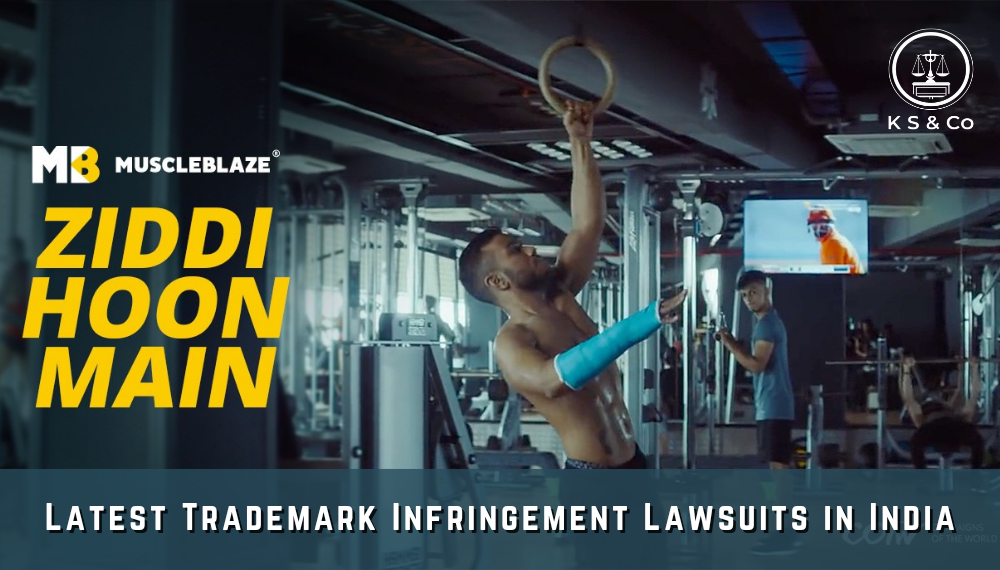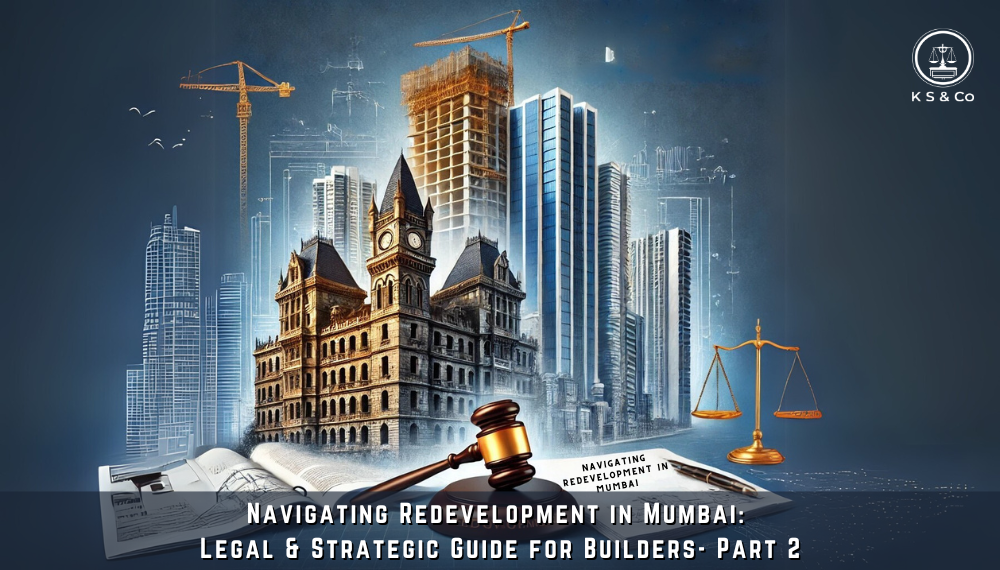The Hon’ble Delhi High Court held that an advertising campaign can be granted protection under Intellectual Property Laws, if the elements in the said campaign are distinctive and satisfies the threshold.
CASE TITLE
Bright Lifecare Pvt. Ltd. vs. Vini Cosmetics Pvt. Ltd. and Ors. (07.07.2022 – DELHC)
FACTS OF THE CASE
The Bright Life care Pvt. Ltd. (“Plaintiff”) launched an advertising campaign in the form of a video titled “ZIDDI HOON MAIN” on various online platforms including YouTube etc. in promotion of their product ‘Muscle Blaze Whey Protein Supplement’ product in March 2018. The Plaintiff registered the marks “ZIDD”, “ZIDDI” and many more under various classes including 35, 37, 41, 38 for slogans and expressions used in the aforesaid promotional video. In January 2022, the Plaintiff came across the advertisements of Vini Cosmetics Pvt Ltd. (“Defendant no.1”) promoting their product ‘REALMAN’ with adoption of the mark “ZIDDI PERFUMES”. Pursuant to the above information, the Plaintiff filed the present suit claiming infringement of its various rights under the laws of copyright, trademarks, passing off, etc. The Plaintiff alleged that the advertisement displayed the name of the product at the end and had a black and yellow theme. Interestingly, the Defendant no.1 imitated the Plaintiff’s advertisement by adopting the same exercises to be depicted in its respective commercial for its product.
JUDGEMENT
The Hon’ble Delhi High Court after hearing the submissions and examining all the materials available on record noted that the prime question was, whether advertising campaigns of this nature were capable of getting protection. In pursuance of the above observation, the Hon’ble Court placed reliance on case law such as Cadbury-Schweppes v. The Pub Squash Co. Ltd. (New South Wales) [1981] RPC 429, wherein it was observed that confusion or deception arising from descriptive material such as slogans and visual images in an advertising campaign can amount to passing off. Therefore, in reference to the prime question, the Court further held that-
“However, a mere idea behind the commercial is not protectable. Only the elements of expression incorporated in the commercial are protectable. Parties which manufacture and sell products expend enormous time, effort, energy and investment in creation of advertising campaigns. They usually engage creative agencies and advertising agencies who render them the services for making these campaigns. Such campaigns are a result of painstaking effort of creative directors, artists, lyricists, slogan writers, cartoonists etc., who work in collaboration with marketing teams for making such campaigns. Thus, these campaigns and commercials are extremely thought out, deliberate and also determine the success/failure of a product. Even a ten second commercial involves enormous creativity and originality. Thus, an advertising campaign including commercials is undoubtedly protectable under intellectual property law.”
In the light of the above, the Hon’ble High Court observed that viewers may associate the Plaintiff’s advertisement with the Defendant’s advertisement with regards to the elements of their advertisements. Therefore, the Hon’ble Court held that the advertisements of both the parties were very much similar and directed Defendant no.1 to pull down the advertisements from youtube.com and other websites. Further, Defendant no.1 was permitted to modify their advertisements in order to eradicate all similarities except the use of the term “ZIDDI” or “ZIDD” to the effect that such words only describe the long-lasting nature of the deodorant and were not used in a manner to draw any similarities or relation with the Plaintiff’s marks.
KS&Co COMMENT
The Hon’ble High Court has recognized the element of Intellectual Property rights in advertising which are original and created by the company and their teams for the purpose of selling products. Anybody using it in a malafide manner shall be treated as infringement and it becomes important for all advertising companies and product companies to ensure that they do not copy each other’s ideas. This will go in a long way to recognize creativity and Intellectual Property Rights of the creator of Advertisement.
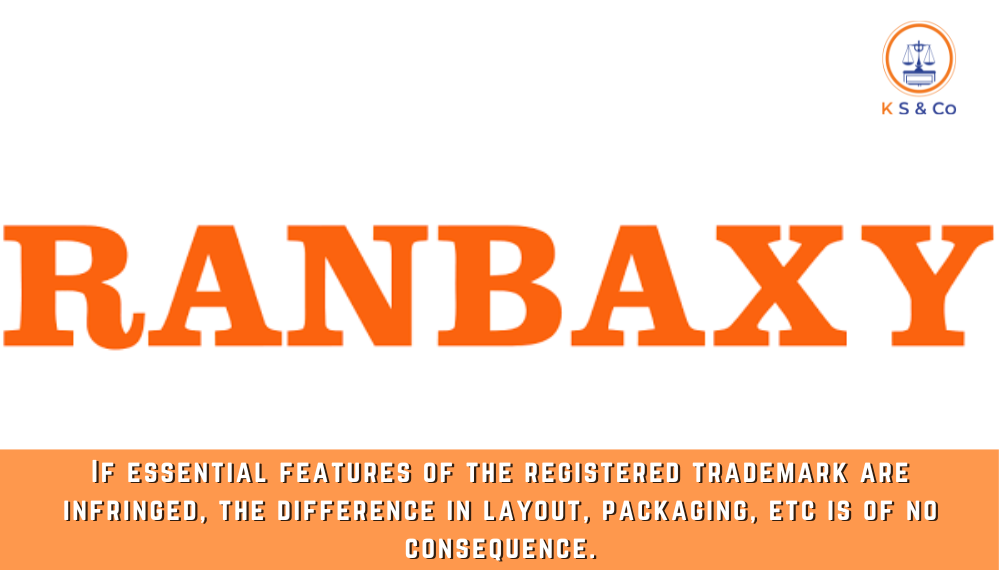
The Hon’ble Single Bench of Justice Jyoti Singh of the Delhi High Court was dealing with a suit for permanent injunction filed by Sun Pharmaceutical Industries Ltd to restrain Punam Devi from using the trademark RANBAXY LABORATORIES
CASE TITLE
Sun Pharmaceutical Industries Ltd. v. Punam Devi, CS(COMM) 504 of 2019.
FACTS OF THE CASE
The Plaintiff herein is M/s Sun Pharmaceutical Industries whose predecessors – Ranbaxy Laboratories Limited adopted the trade name RANBAXY in the year 1961 and filed an application for registration in the year 1991, claiming use since 1966. They have been extensively and continuously using the same since then. In this case the, Plaintiff is a proprietor of trademarks ‘RANBAXY’, ‘RANBAXY LABORATORIES LIMITED’ and its formative marks in India as well as globally with immense goodwill and popularity.
The Plaintiff came across a mark, in the Trade Marks Journal No. 1907-0 dated 24th June 2019, bearing Application no. 4153272 in class 35.The said mark belonged to Punam Devi (“the Defendant”). Aggrieved by the same, the Plaintiff filed the present suit for seeking a decree of permanent injunction, restraining the Defendant from manufacturing, selling, advertising, etc., any products/services under the impugned trade name/mark RANBAXY LABORATORIES or any other trademark, trade name, domain name, identical or deceptively similar to Plaintiff’s trademark RANBAXY or RANBAXY LABORATORIES.
JUDGEMENT
It was held by the Hon’ble Delhi High Court that the unauthorized use of an identical mark in similar class of goods i.e., Class 5 by the Defendant constitutes violation of Plaintiff’s statutory right of exclusive use of its registered trademarks RANBAXY and RANBAXY LABORATORIES LIMITED under Section 29 (2) (c) of the Trademarks Act, 1999. In an action for infringement of trademark, once it is shown that essential features of the trademark are adopted by the defendant, the difference in layout, packaging etc. is of no consequence. In the light of the above, the Hon’ble Court decreed the suit of the plaintiff and passed a permanent injunction against the defendants from using the trade name RANBAXY LAB LABORATORIES in any manner and awarded Rs. 6, 00,000 as the cost.
KS&Co COMMENT
The trademark of a brand gives its goods and services an identity. It helps the customers associate the goods and services to its source. Therefore, it is pertinent to ensure that your trademark is not being infringed upon. Trademark Infringement is defined under Section 29 of the Trademarks Act, 1999 as an act where an unauthorized person start using a mark which is “deceptively similar” and “identical” to the registered trademark.,
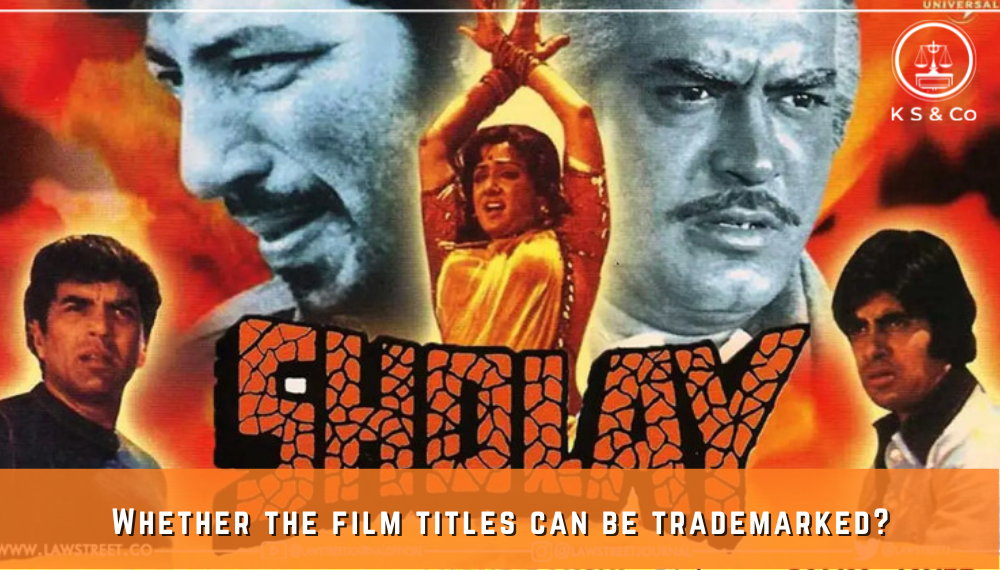
Hon’ble Justice Pratibha Singh of the Delhi High Court observed that titles of films are eligible for protection as a trade mark, both under statute and under the common law.
CASE TITLE:
Sholay Media Entertainment & Ors. v. Yogesh Patel & Ors. (Delhi HC)
FACTS OF THE CASE:
The Plaintiff herein is Sholay Media Entertainment and Sippy Films Pvt. Ltd. The Plaintiffs are the bona fide owners of the iconic film “SHOLAY” and have secured registration of the trade mark “SHOLAY” in several classes. However, the cause of action arose when the Plaintiffs came across a magazine released in the year 2000 titled “IT-Information Technology”, the Plaintiff learnt that Mr. Yogesh Patel and ors (the “Defendant”) had registered the domain name ‘www.sholay.com. The said magazine was accompanied by a free compact disk (‘CD’) containing the advertisement of the website. The aforesaid advertisement reflected several services such as chat, e-greetings, countdowns, horoscopes kid zone, classifieds, matrimonial, and grocery store. Therefore, the Plaintiff filed the present suit seeking permanent injunction against the Defendants restraining them from using the trade mark “SHOLAY.” They also claimed for damages and transferring the domain name, ‘www.sholay.com’ in their name. The Plaintiff contended that the Defendants have been misusing the trademark “SHOLAY” by registering the same in a series of domain names, using the said mark in relation to aforesaid services etc. The Plaintiff further stated that they had been using the said mark in relation to cinematographic films, vinyl records, audio tapes and DVDs etc. and as a result of such long, extensive and continuous use, the trade name “SHOLAY” had acquired tremendous goodwill and reputation and was associated exclusively with the plaintiff. The Plaintiff also registered several domain names under the said mark such as esholay.com, esholay.com, esholay.net, esholay.com, esholay.net, sholayent.com etc. The Defendant contended that the Defendants applied for the registration of “SHOLAY” as a trade mark and incorporated a company with the name “SHOLAY” prior to the plaintiffs’ application for registration. Additionally, due to no resemblance with the iconic movie “SHOLAY”, there shall be less chances of confusion among the general public.
JUDGEMENT:
After hearing both sides, the Hon’ble Court held the suit in favour of the Plaintiff and directed the Defendant to stop using the mark “SHOLAY” and transfer all domain names with the term “SHOLAY.” The Hon’ble Court also restrained them from using any image or clipping from the said movie, selling merchandise containing the term SHOLAY or any images from the said cinematographic film. Further, the Hon’ble Court observed a contrast between the copyright protection and trademark protection for a title through the cases of Krishika Lulla & Ors. v. Shyam Vithalrao Devkatta & Anr and Kanungo Media (P) Ltd. v. RGV Film Factory & Ors wherein it was held that the plaintiffs will be entitled to relief if they are able to prove that (a) the title has acquired secondary meaning, and (b) there is likelihood of confusion of source, affiliation, sponsorship or connection of potential buyers/audience/viewers.
KS&CO COMMENTS:
The rapid growth in the Media and Entertainment Industry has led to an increase in a number of intellectual property issues in that sector. For instance, ‘the title of film’ essentially indentifies a film and helps it achieve distinctiveness in the minds of the audience. Unfortunately, the Copyright Act, 1957 does not include ‘title of film’ under the definition of “works’. The reason being that it is not considered a literary work. Therefore, the filmmakers resort to trademark law for safeguarding the rights of the title of their film, as a service mark. The reason being so that Trademark Act, 1999 defines a mark as one which is capable of distinguishing good and services of one person from another.
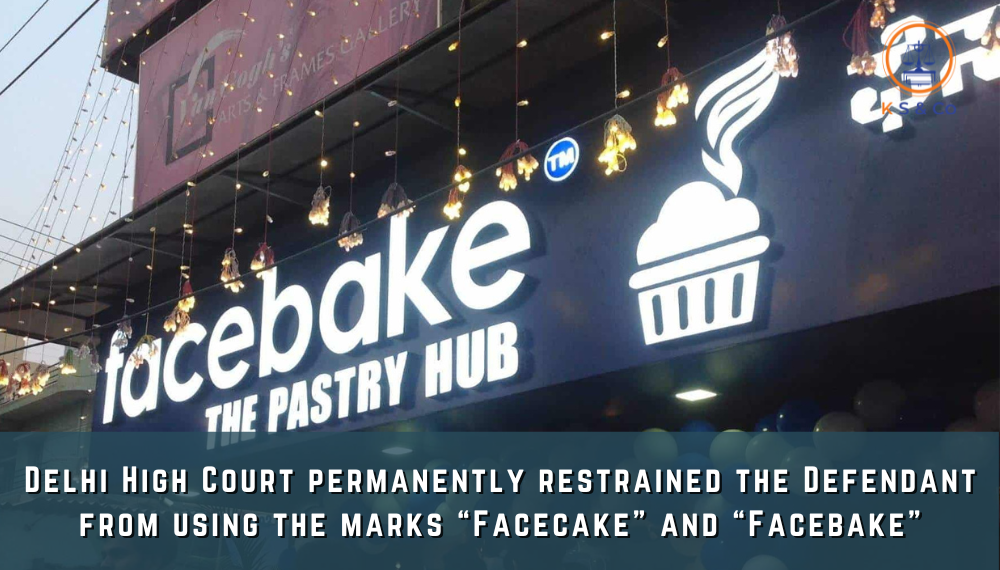
CASE TITLE:
Meta Platforms Inc. v. Noufel Malol & Anr., CS(COMM)499/2020 & IA 8765/2021.
FACTS OF THE CASE:
Meta, the social media giant (“the Plaintiff”) has being using the mark “Facebook” since 2004 and has obtained the registration of the same in about 130 countries or more covering over 45 classes. Additionally, the Plaintiff’s mark has gained tremendous goodwill and popularity with avid users of around 13.5 billion daily. However, the Plaintiff came to know about the mark Facebake/Facecake‟ by Noufel Malol (“the Defendant”) when it was advertised in the Trademark Journal, seeking registration of the mark “Facebake”.
The Plaintiff contented that the use of similar mark by the Defendant is not only infringement of common rights but also an infringement of their statutory rights. Further, the Plaintiff contented that the use of the said mark with the same color scheme is a blatant mimic and an unfair attempt by the Defendant to malign the well-established goodwill of the Plaintiff. The Plaintiff asserted that “Facebook” marks and also other marks containing the formative word “Facebook” have been recognized as “well-known” under Section 2(1)(zg) of the Trade Marks Act, 1999 in India as well as several other international jurisdictions such as the European Union, Brazil, Sudan, Portugal, France, the United States of America etc. They are therefore entitled to be protected, despite the Defendant using the mark under a different class of goods.
JUDGEMENT OF THE CASE:
The Hon’ble Court held that the mark ‘facebook’ is a well known trademark under Section 2(1)(zg) of the Trade Marks Act, 1999 by applying the test and parameters of the principles laid down in the case of Tata Sons Ltd. It is pertinent to note that no one appeared on behalf of the Defendant despite being summoned, therefore, the decree was passed ex-parte under Order IX, Rule 6 of Civil Procedure Code, 1908. In the said decree, the Defendant was permanently restrained from using the Facebake marks; the domain name the email ids the Facecake; the Facebook marks, the Facebook Visual Presentation, and any other Facebook formative trademarks of the Plaintiff, or any other mark deceptively similar thereto in relation to products and services related to confectionary items, or any other goods or services, in any manner, including the social media. Further, it was observed by the Hon’ble Court that “Facebook” is a well-known mark under the provisions of Trademark Act, 1999 and even though the goods and services of the two marks fall under different classes, the color scheme and the visual representation were very similar. In the light of the above, the Defendant was additionally directed to pay damages of Rs. 50,000 and the cost of the suit to Plaintiff.
KS&CO COMMENT:
Anyone using a deceptively similar brand, using a similar font, color schemes, format and sound can amount to trademark infringement. Although there have been many instances where a similar sounding brand selling goods under the same class have co-existed that brings us to the question of what brand names can be infringers. In order to ascertain that, one needs to see how well know the mark is, its international presence and their reputation in the market. In the aforesaid case, ‘facecake’ was clearly trying to ride upon the goodwill of facebook by using a very similar color scheme, format and font type in their logo.

